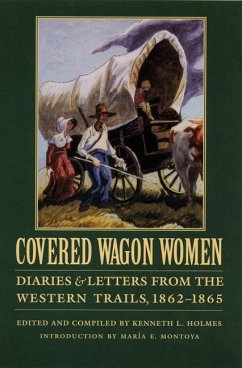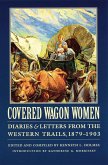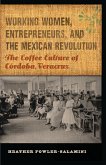The overland trails in the 1860s witnessed the creation of stage stations to facilitate overland travel. These stations, placed every twenty or thirty miles, ensured that travelers would be able to obtain grain for their livestock and food for themselves. They also sped up the process of mail delivery to remote Western outposts. Tragically, the easing of overland travel coincided with renewed conflicts with the Cheyenne and other Plains Indians. The massacre of Black Kettle's people at Sand Creek instigated two years of bloody reprisals and counterreprisals. "Amid this turmoil and change, these daring women continued to build on the example set by earlier women pioneers. As Harriet Loughary wrote upon her arrival in California, "(after) two thousands of miles in an ox team, making an average of eighteen miles a day enduring privations and dangers . . . When we think of the earliest pioneers . . . we feel an untold gratitude towards them."
Bitte wählen Sie Ihr Anliegen aus.
Rechnungen
Retourenschein anfordern
Bestellstatus
Storno




